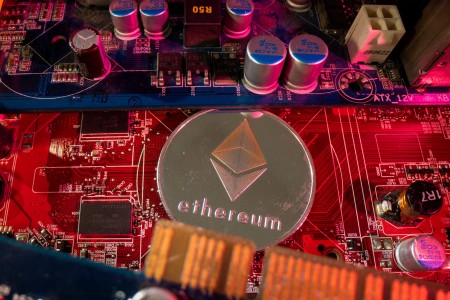By Nate Raymond
BOSTON (Reuters) – Two brothers who studied at the Massachusetts Institute of Technology were arrested on Wednesday on U.S. charges that they carried out a cutting-edge scheme to exploit the Ethereum blockchain’s integrity and steal $25 million worth of cryptocurrency.
Federal prosecutors in Manhattan called the scheme perpetrated by Anton Peraire-Bueno, 24, and James Peraire-Bueno, 28, “novel” and said the case marked the first time that such a fraud had ever been the subject of U.S. criminal charges.
Authorities said they executed their elaborate heist in April 2023, stealing $25 million from traders in just 12 seconds by fraudulently gaining access to pending transactions and altering the movement of cryptocurrency.
“As we allege, the defendants’ scheme calls the very integrity of the blockchain into question,” U.S. Attorney Damian Williams said.
An indictment charged them with conspiracy to commit wire fraud, wire fraud, and conspiracy to commit money laundering. Anton Peraire-Bueno was arrested in Boston, while James Peraire-Bueno was arrested in New York.
Their lawyers did not immediately respond to requests for comment.
Both brothers had attended Cambridge, Massachusetts-based MIT, where according to prosecutors they studied computer science and math and developed the skills and education they relied upon to carry out their fraud.
The indictment alleged that for months, the Peraire-Bueno brothers plotted to manipulate and tamper with the protocols used to validate transactions for inclusion on the Ethereum blockchain, a public ledger that records each cryptocurrency transaction.
Prosecutors said they did so by exploiting a vulnerability in the code of software called MEV-boost that is used by most Ethereum network “validators,” who are responsible for checking that new transactions are valid before they are added to the blockchain.
Prosecutors said that after carrying out the heist, the brothers rejected requests to return the funds and instead took steps to launder and hide the stolen cryptocurrency.
(Reporting by Nate Raymond in Boston; Editing by Bill Berkrot)


